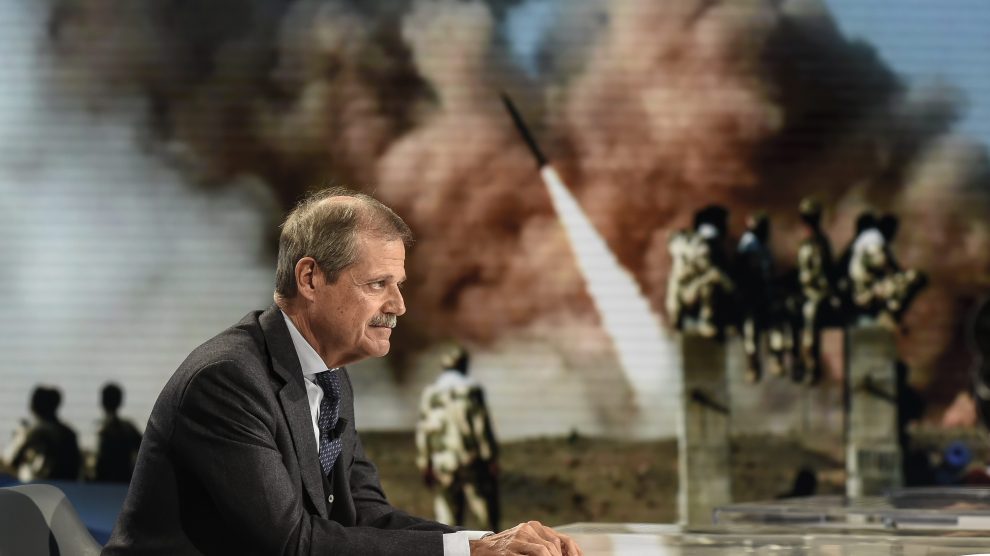Today and tomorrow. There are two directives that mark the frenetic activity of the international community facing the Afghan crisis. There is an emergency evacuation, and an ultimatum that hangs over the lives and hopes of thousands of refugees. Afterwards is the unknown, a ruthless regime to deal with, a crisis that scares – to no small extent – even the militias who conquered Kabul.
As for Europe, it is time to “rethink” the Atlantic Alliance, says Ambassador Giampiero Massolo, President of the Italian Institute for International Political Studies – one of Itay’s most respected think tanks – and former Director General of the Department of Information for Security (DIS, the entity coordinating Italy’s intelligence agencies).
Could the G7 have changed the cards on the table?
It could not have been as decisive as the next Italian-led G20, because some of the protagonists are missing. China, Russia, Pakistan: without them there is no moving from words to deeds. But [yesterday’s] meeting was important for two reasons.
That is to say?
The first is of a general nature. The West is not going anywhere if it does not agree. Let us not forget that there was unanimous consensus among allies regarding the choice to withdraw from Afghanistan. That was lacking with regards to methods and timeframes. Now, there is an operational urgency.
The Taliban ultimatum expiring August 31. Would pushing it be too risky?
We will see in the next hours if there is a margin. It will be the first occasion to test the credibility of the Taliban’s dogmatic attitude. The evacuation from Kabul is proceeding at a rapid pace, but there are allies, including Italy, who need to create a corridor for people who are in other areas, especially in the country’s North and West.
We will have to deal with the Taliban. Are the sanctions enough?
Not by themselves. We have already seen how little the Taliban care about international recognition. Aid policy will be an important lever. Afghanistan is not governed from the centre: now that Kabul has been conquered there is a country to govern and myriads of local interests to satisfy.
And it’s not the same country it was twenty years ago.
No, it has changed a lot and the Taliban know it. Today Afghans have social media, they are connected to the outside world, they are even willing to take to the streets and risk their lives. The people must be given something.
What happens next?
In the very short term we are in the hands of the United States. Then the time will come for an operational agreement, the West will have to impose strict conditions on the Taliban. Afghanistan will become a playground of competing interests, we must prevent it from stabilizing to our detriment.
Is it necessary to talk to all to achieve this?
It is inevitable if we don’t want to stay out of the game. In my opinion, the West has four priorities. The humanitarian emergency, not leaving the monopoly on reconstruction to China, preventing Afghanistan from becoming a sanctuary for jihadists, and the fight against drug trafficking.
CIA Director William Burns met with the Taliban leadership in Kabul. As a former director of DIS, do you think this is normal?
Not just normal, but a must. The Services have the duty to speak with everyone. It would be very serious if there was no open channel, and I hope this does not hold true for the United States only.
We have already reached the quid pro quo scenario.
Unfortunately essential. The stronger the hand of the international community, the more safeguards against the weakest in Afghanistan will be guaranteed. On this we must be uncompromising towards those who continue to be ambiguous.
Like who?
First of all, Turkey, a NATO member and interlocutor of the European Union. We can no longer accept vague reassurances about relations with the Taliban and the management of migratory flows: [Turkish President Recep Tayyip] Erdoğan must come out into the open. The same goes for Qatar, which hosted the Doha negotiations and does not clarify which side it wants to be on.
These days there are those who speak of European strategic autonomy from the United States in the light of the Afghan debacle. Is there a risk of the resurgence of an anti-American sentiment?
Notwithstanding that the West has every interest in remaining united, and that moving disorderly in the face of autocracies is a bad idea, a bottom-line clarification with the United States is necessary. The American retrenchment leaves Europe more alone, more divided in terms of common defence, and opens up space for China.
So?
So the Afghan chaos becomes an opportunity to re-establish a conscious Atlantic relationship. The ambition of wanting to do it alone must be rejected, the respect for everyone’s needs must be upheld. It is no longer possible that the EU is treated as a pariah by the US every time it talks with China. But on the horizon I see another, more insidious scenario.
Meaning?
Around the world, those areas relative to European interests are increasingly at risk. From Libya to Lebanon, from Yemen to Somalia to the Indo-Pacific and South East Asia. I would not want China and the US to broker a pact of mutual power and influence through an act of realpolitik. Europe would remain caught in the middle, a supporting actor. Once again.




